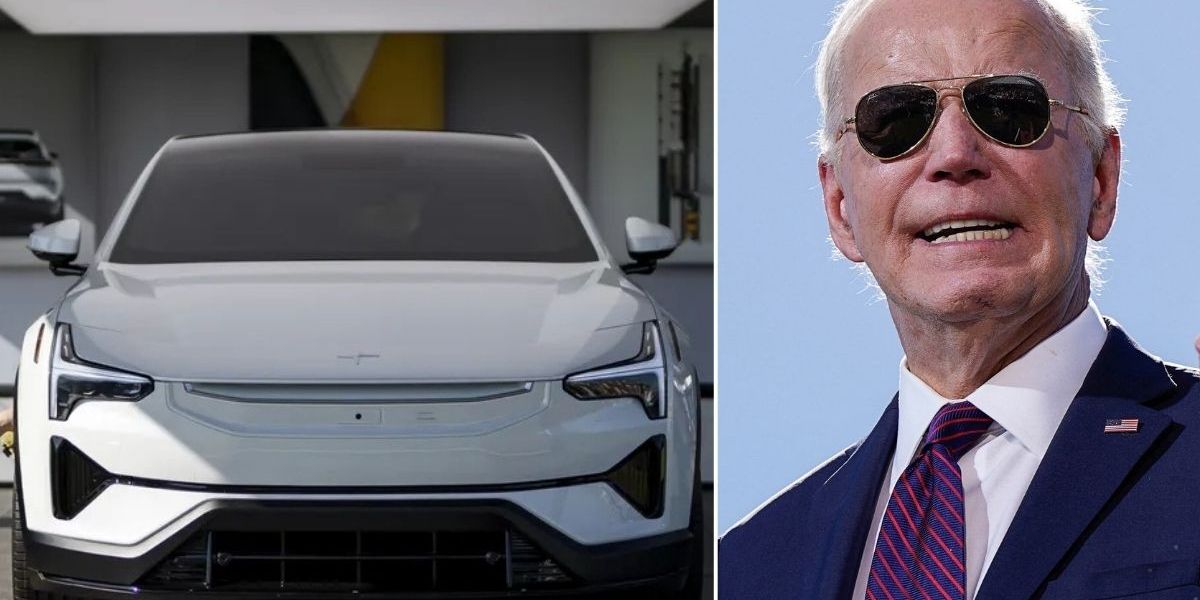Polestar Faces Potential Ban in the U.S. Amidst New Trade Regulations
In a significant development for the electric vehicle (EV) market, Swedish automaker Polestar, a prominent player in the premium electric vehicle sector, may find itself effectively banned from selling its cars in the United States. This potential ban arises from a proposed rule set forth by the Biden Administration, aimed at tightening regulations on the use of Chinese vehicle hardware and software. As the landscape of the automotive industry continues to evolve, this situation raises critical questions about trade, national security, and the future of electric mobility in America.
The Proposed Rule and Its Implications
The U.S. Commerce Department has introduced a proposal that could have far-reaching consequences for Polestar. According to the automaker, the new regulations would "effectively prohibit" the sale of vehicles manufactured in its South Carolina facility, as well as those produced in China. This move is part of a broader initiative to restrict connected vehicles from China on American roads, citing national security concerns as the primary rationale.
Polestar’s comments to the Commerce Department highlight the potential fallout from these regulations. The company emphasized that the proposed rules could severely impact its operations, which include a significant workforce in China and substantial investments in the U.S. Polestar argued that the government should reconsider whether such a sweeping rule is the appropriate response to the stated national security concerns, especially given the company’s lawful organization and its investments in the American market.
Polestar’s Background and Operations
Polestar, which is majority-owned by China’s Geely, has carved out a niche in the premium electric vehicle market with its innovative designs and advanced technology. The automaker’s latest offering, the Polestar 4, boasts impressive specifications, including a maximum range of 385 miles and a price point of just under £60,000. Despite its Swedish roots, Polestar’s operations are deeply intertwined with China, where a significant portion of its workforce and key decision-making units are located.
In February, Geely reaffirmed its commitment to Polestar by providing full operational and financial support after Volvo Cars announced it would cease funding the brand. This shift in financial backing underscores the complexities of international partnerships in the automotive industry, particularly as companies navigate the challenges posed by geopolitical tensions and evolving trade policies.
The Broader Context of U.S.-China Trade Relations
The proposed regulations are not isolated to Polestar; they reflect a broader trend in U.S. trade policy aimed at countering perceived threats from China. Major American automakers, including General Motors and Ford, have also been affected by these proposed rules. Ford, in particular, has expressed concerns that the regulations could prohibit the sale of completed connected vehicles assembled by foreign affiliates of domestic automakers.
In May, the White House announced a significant increase in tariffs on electric vehicles made in China, raising the rate from 25% to 100%. This move is part of President Biden’s vision to bolster American manufacturing and ensure that the future of the auto industry is rooted in domestic production. The administration argues that these tariffs will protect American manufacturers from unfair trade practices and promote job creation within the United States.
The Future of Polestar and the EV Market
As Polestar navigates this challenging landscape, the implications of the proposed regulations extend beyond the company itself. The potential ban raises questions about the future of electric vehicles in the U.S. market, particularly for brands that rely on international supply chains and partnerships. The automotive industry is at a crossroads, with manufacturers needing to adapt to rapidly changing regulations while also meeting the growing demand for sustainable transportation solutions.
Polestar’s situation serves as a reminder of the complexities involved in the global automotive market. As the company seeks to balance its operations between China and the U.S., it must also contend with the evolving regulatory environment that could reshape the competitive landscape for electric vehicles.
Conclusion
The proposed rule from the Biden Administration poses a significant challenge for Polestar and highlights the intricate relationship between trade policy, national security, and the future of electric mobility. As the automotive industry continues to evolve, stakeholders must remain vigilant in addressing these challenges while striving to create a sustainable and innovative future for transportation. The outcome of this situation will undoubtedly have lasting implications for Polestar, American automakers, and the broader electric vehicle market.
